(New York Jewish Week via JTA) — More than 50,000 people die on average every year in New York City, and with an estimated Jewish population of about 12% in the city, it’s reasonable to assume that around 6,000 of them lived Jewish lives.
At the New York Jewish Week, we’ve published obituaries for prominent Jewish New Yorkers who died throughout 2021, but to close out the year, we wanted to turn our attention to people who may not have been household names but whose stories deserve to be remembered.
Here, we recall 18 Jewish New Yorkers who made a mark on their city, with the support of people who knew and loved them. They include several pathbreaking women, policy makers in several fields, synagogue regulars and those who expressed their Jewishness in other spaces, Holocaust survivors and people whose lives began and ended within a few blocks’ space. Many lived into their nineties or even longer; some lived tragically short lives.
All contributed to the vibrancy of their city and its Jewish communities. May their memories be a blessing.
This story is part of JTA’s coverage of New York through the New York Jewish Week. To read more stories like this, sign up for our daily New York newsletter here.
Milton Steinberg
A prayer leader devoted to the music of a vanished world.
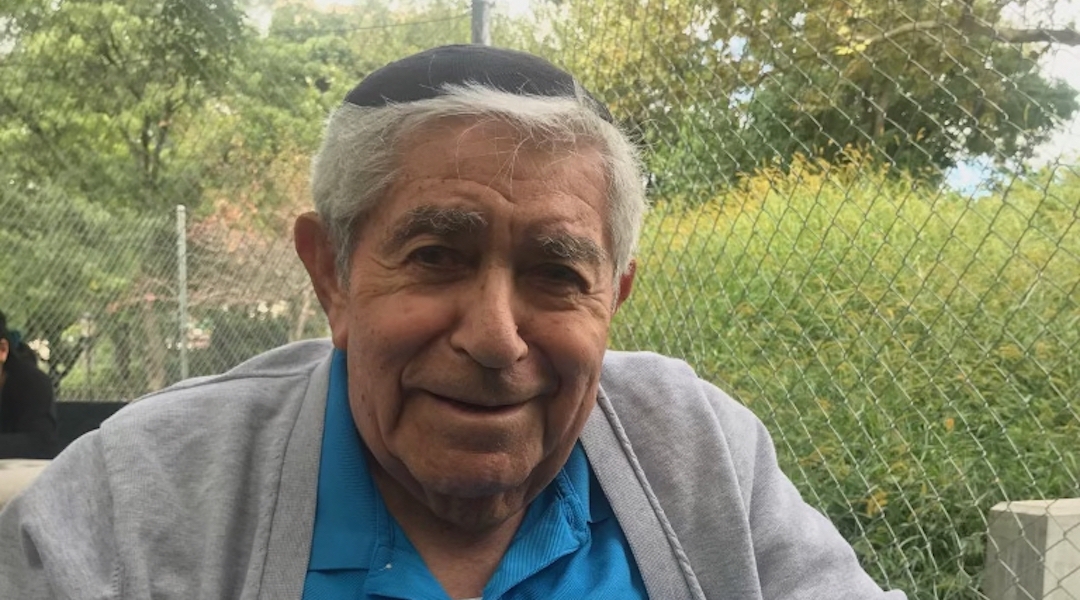
Milton Steinberg died on Jan. 14 from complications of COVID-19 at the age of 96. (Courtesy photo)
Milton Steinberg’s devotion to traditional Eastern European prayers and liturgical music began during his childhood in a village in northern Hungary. It survived Steinberg’s experience during the Holocaust, in which his mother and three younger siblings were murdered. And it was given new life in Riverdale, the section of the Bronx where he and his wife, also a survivor, settled and raised their family. The proprietor of a sportswear business by workday, Steinberg moonlit as a prayer leader at the Riverdale Jewish Center. For more than a decade in his later years, he joined the synagogue’s cantor during the recitation of the Avodah prayer, a centerpiece of the Yom Kippur liturgy. “People would have tears in their eyes,” Arlene Steinberg said of her father’s voice. “Cantorial music meant everything to him.” Steinberg died on Jan. 14 from complications of COVID-19 at the age of 96.
Eda Solome
A life story that inspired many.
Eda Solome broke into public view twice in the last two years. The first happened early on in the pandemic, when the journalist Irin Carmon interviewed her cousin Jack, Eda’s husband, about his outlook as a Holocaust survivor on isolating at home in Brooklyn. “What we are doing now is a luxury,” said Jack Solome, who said caring for Eda, whom he met while they hid from the Nazis under a Polish farmer’s floorboards for two years, was his reason to stay alive. The second happened after her death, on Dec. 7 at 100, when someone noticed the obituary placed in The New York Times by her family. “It’s like micro-nonfiction,” wrote the author of a viral tweet sharing Solome’s obituary. Wrote Carmon on Instagram, “I knew she spoke seven languages, and at the funeral I learned she added English by reading Time magazine. She was fiercely loving and elegant and generous. We were lucky to have her on this earth for as long as we did.”
Abe Schumer
A politician’s dad who was most passionate about his family.
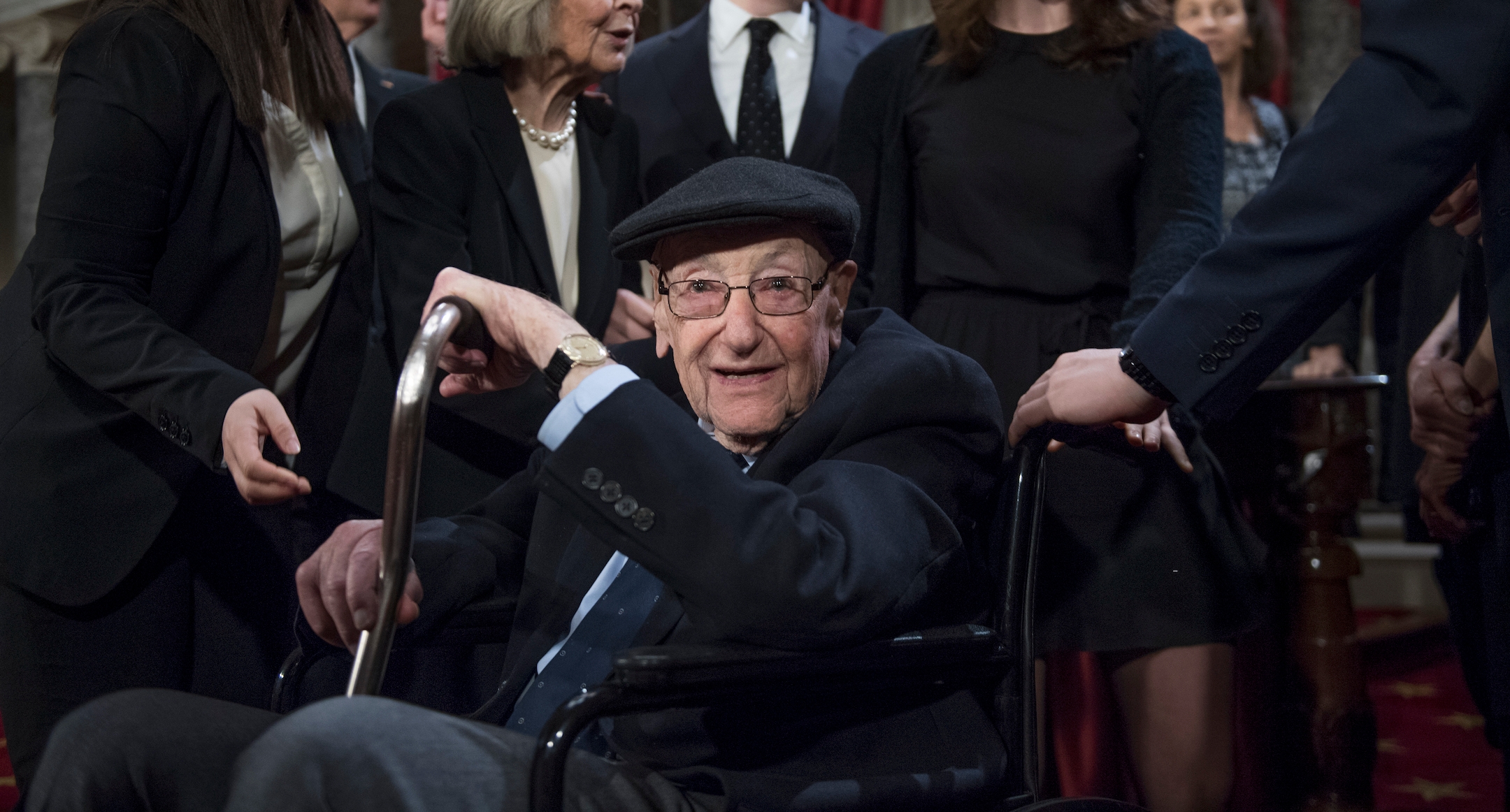
Abraham Schumer, father of Sen. Chuck Schumer, attends a swearing-in ceremony for his son in the Capitol, Jan. 3, 2016. (Tom Williams/CQ Roll Call)
A World War II veteran, Abraham Schumer took over his family’s exterminating business in Brooklyn — but he always hated going to work. Instead, his passion was his family, even after he fought with his wife when he missed his older son’s birth because he snuck out of the hospital to watch Macy’s Thanksgiving Day parade. That son was Chuck Schumer, currently the highest-ranking Jewish lawmaker in U.S. history. “In so many ways — he personified the greatest generation,” Chuck Schumer wrote after his father’s death at 98 in November. “He took whatever was thrown at him no matter how difficult, did his job, never complained. An amazing husband, parent, grandparent, great-grandparent. We love him & will miss him.”
Yolande Dreyfuss, Tilda Landovitz and Leah Praskin
Longtime members of the Sisterhood of the Conservative Synagogue Adath Israel of Riverdale.
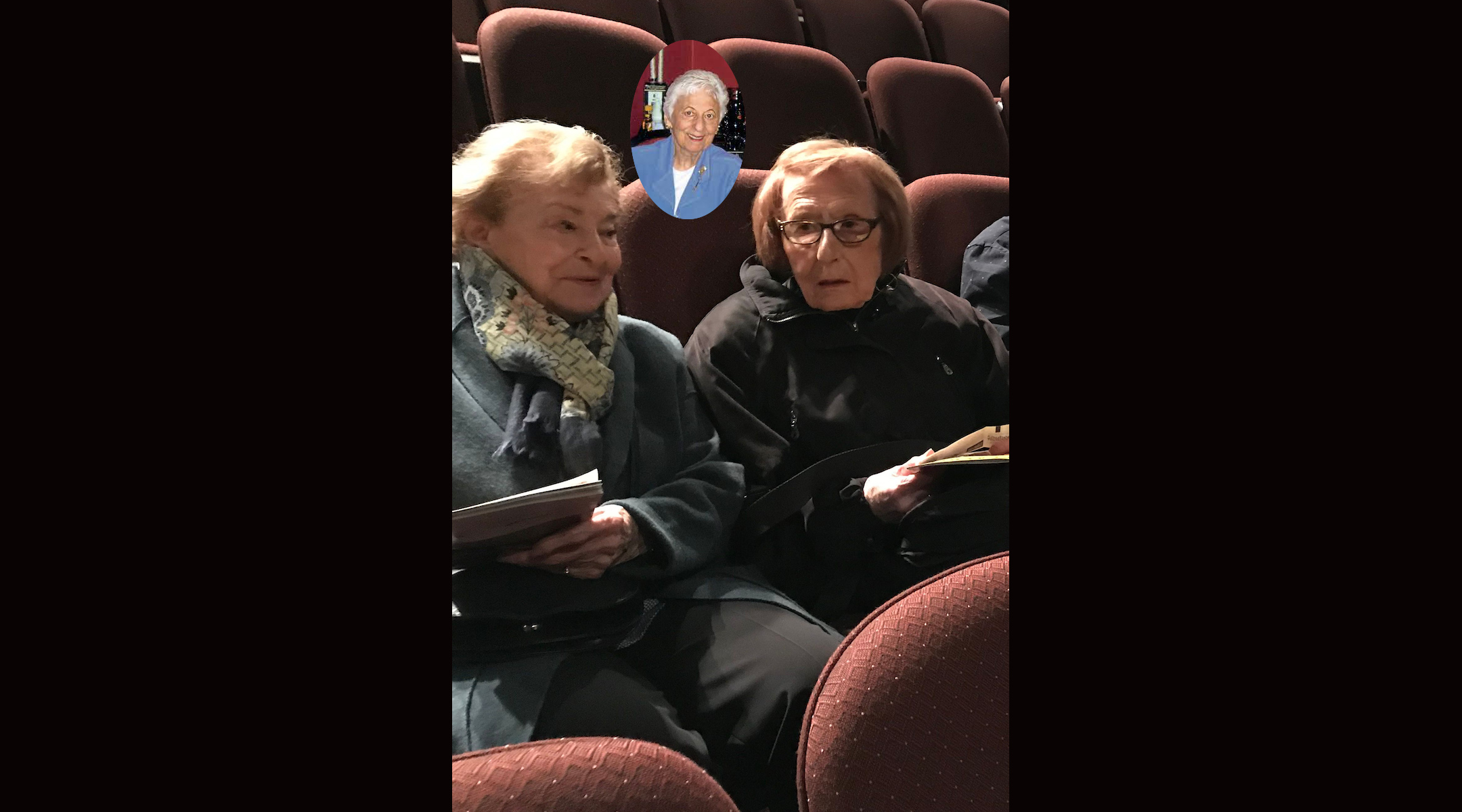
Leah Praskin, left, and Yolande Dreyfuss attend a Sisterhood trip to see “Fiddler on the Roof.” They and Tilda Landovitz, inset, were mainstays of the Conservative Synagogue Adath Israel of Riverdale. (Courtesy CSAIR)
“Leah Praskin always looked like she was on her way to tea at the Plaza, but she was the first to get “down and dirty” when there was a job to do. Her most recent claim to fame was running our annual bazaar – a truly dirty job. Leah led her group to collect, sort, prioritize, and sell everything that anyone needed. (If you didn’t need it, Leah could convince you that you did.)
“Tilda Landovitz was twice Sisterhood president and was an innovator. Tilda initiated our weekly parsha class that started four rabbis ago and is still going strong, and our first adult bat mitzvah program. She established programs ranging from author book signings to in-house catering to krav maga training. Most importantly, she involved others who would become our next Sisterhood leaders, ensuring the continuing importance of women’s voices and actions in support of our synagogue.
“Yolande Dreyfuss came to the Bronx via France and never lost her continental flair. She always encouraged Sisterhood to sponsor trips to museums, theater and musical events. Yolande was the first to volunteer for the repetitive tasks that are the bane of organizations: preparing 500 Purim packages, stuffing envelopes, distributing sign-up sheets and collecting donations She liked to stay in the background, but we at Sisterhood made sure to shine a light on her unfailing importance.
“This year we lost three of our strongest, wisest women. Each had her unique strengths, and collectively they were a force of nature.” — Rabbi Katie Greenberg, CSAIR
David Eliach
Influenced countless Orthodox day school students.
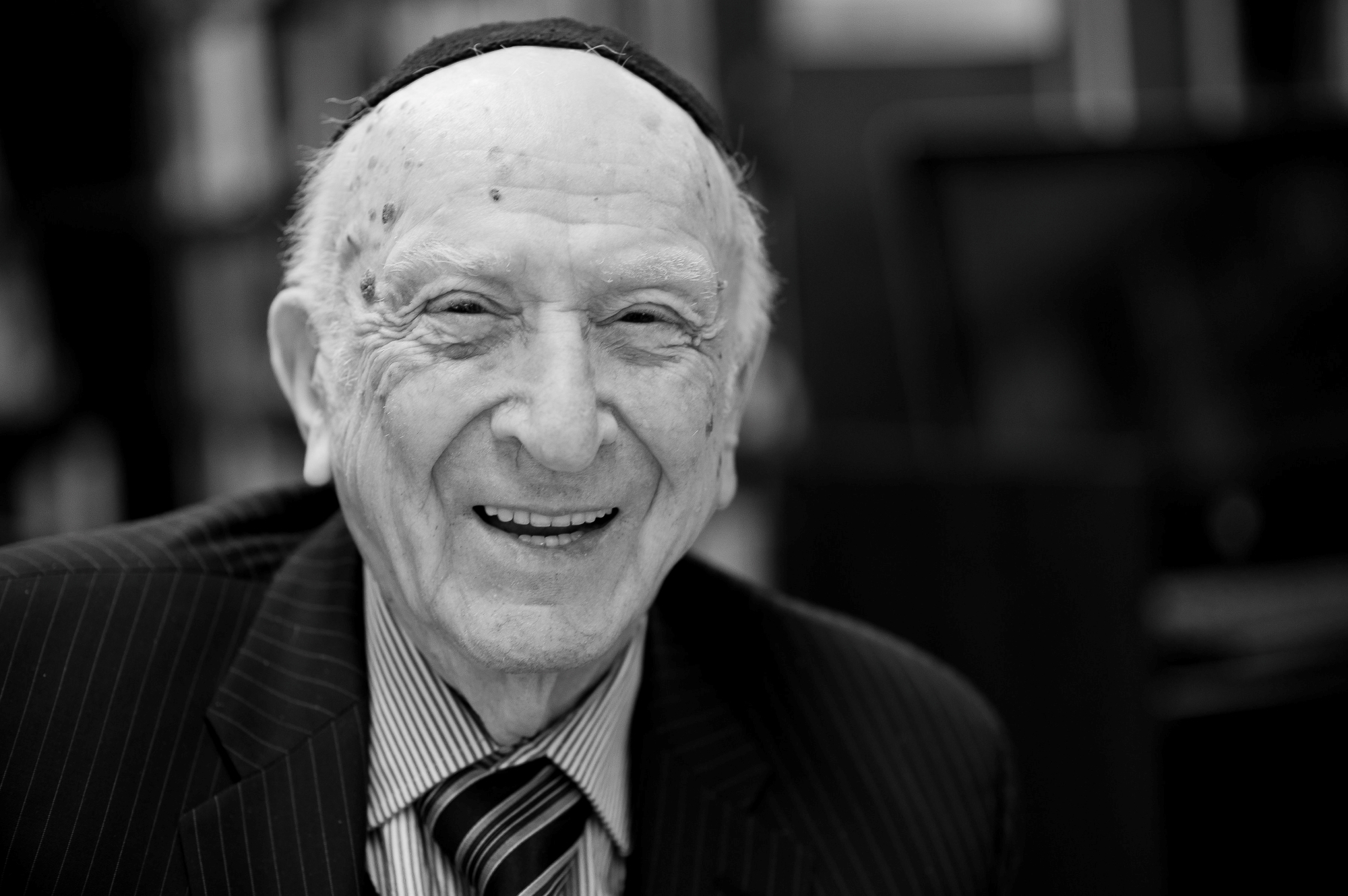
Rabbi David Eliach served as principal and then dean of Yeshivah of Flatbush for 30 years. (Courtesy Yeshivah of Flatbush)
David Eliach supervised the education of thousands of children at the Modern Orthodox Yeshiva of Flatbush between 1953, when he moved from Israel to teach there, until his retirement as dean in 1997 at age 75. He remained closely involved at the school for the rest of his life, visiting multiple times a week to mentor teachers until the pandemic forced him to transition to phone calls instead. When he died in September at 99, he was mourned by generations of students and others across the Jewish world who had been impressed by his devotion to the Hebrew language, to poetry and to lifelong learning. Writing to announce Eliach’s death, Yeshiva of Flatbush wrote, “His contribution to Jewish education across the globe is unparalleled and his impact on thousands of students will be felt for generations.”
Marianne Steiner
“The life of the party.”

Marianne Steiner, a window dresser at Saks Fifth Avenue, died on Feb. 26, 2021 after contracting COVID-19. (Courtesy)
As a young Jewish refugee in the late 1930s, Marianne Steiner brought creative flair to her job as a window dresser at Saks Fifth Avenue, the upscale department store in Manhattan.
While her family was well off before fleeing Nazi Germany, their finances in New York were more limited. At the time, Steiner owned only one black dress that she wore to work each day, embellishing it with different collars.
Steiner met her husband, a publisher and designer who later developed the Audubon series of nature field guides, when he was her parents’ tenant on the Upper West Side. They lived together for decades on the Upper East Side, becoming collectors of Greek art and major benefactors of Holocaust remembrance efforts.
“She had a lot of style,” her son Tom Steiner said shortly after Steiner died in February at 101. “She knew everyone. My friends who were much younger than she was, they loved her. She was the life of the party.”
Dorit Niven
Taught at Kinneret Day School in Riverdale for more than 50 years.
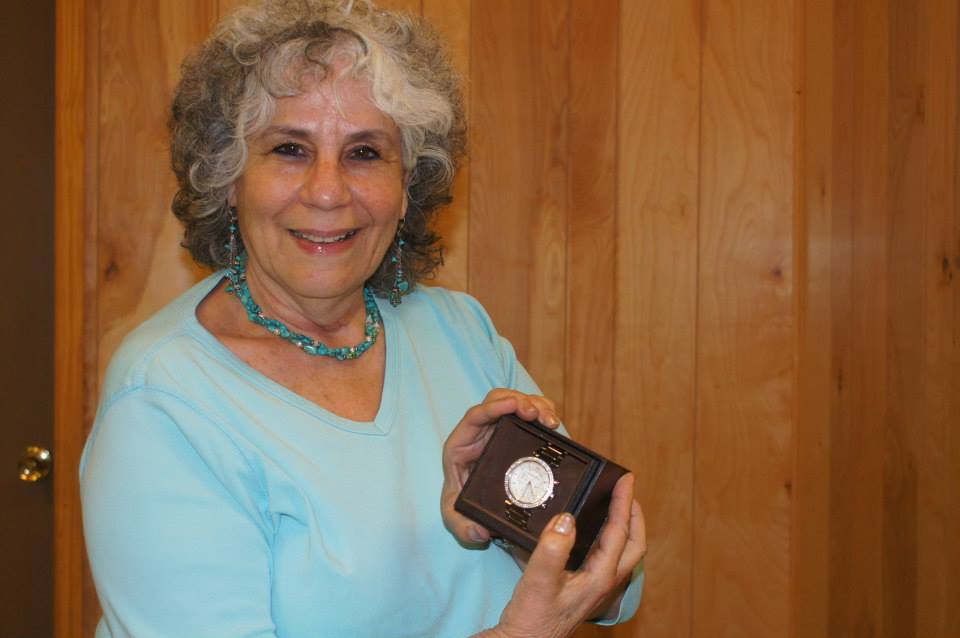
Dorit Niven first started teaching at Kinneret Day School in 1967. (Courtesy)
“Dorit was one of those rare teachers that one encounters once in a lifetime. She was a legend. Her wisdom, her love, her approach to the children. Her smile will shine forever. Dorit was strong. She was smart. She was empowering, open. Her classroom was a continuous experiment, full of imagination. Together with her kindergarten students, she rearranged the world each and every day. In a day’s work, she and her students visited Israel, learned Hebrew, celebrated some Jewish historic event, learned how to read, to count, to paint, to saw, to cook, to plant, to respect, to interact, to sing, and all that before lunch time. Her energy and drive were endless.
“Outside the classroom she never stopped talking about her home, her husband Mark, her family. There was hardly a day that went by that she did not speak of Tamar, her pride and joy, and her grandchildren whom she doted over like a true savta.
“I first met Dorit in 1969. We worked together daily for over 50 years. When you work with someone day in and day out, for as long as I did, you really get to know a person as a friend and as a colleague and trust me, Dorit was one of a kind. I miss her. Her memory makes me smile each and every day.” She was 75 when she died in August. – Asher Abramowitz, principal, Kinneret Day School
Larry Harlow
A salsa musician known as “The Marvelous Jew.”
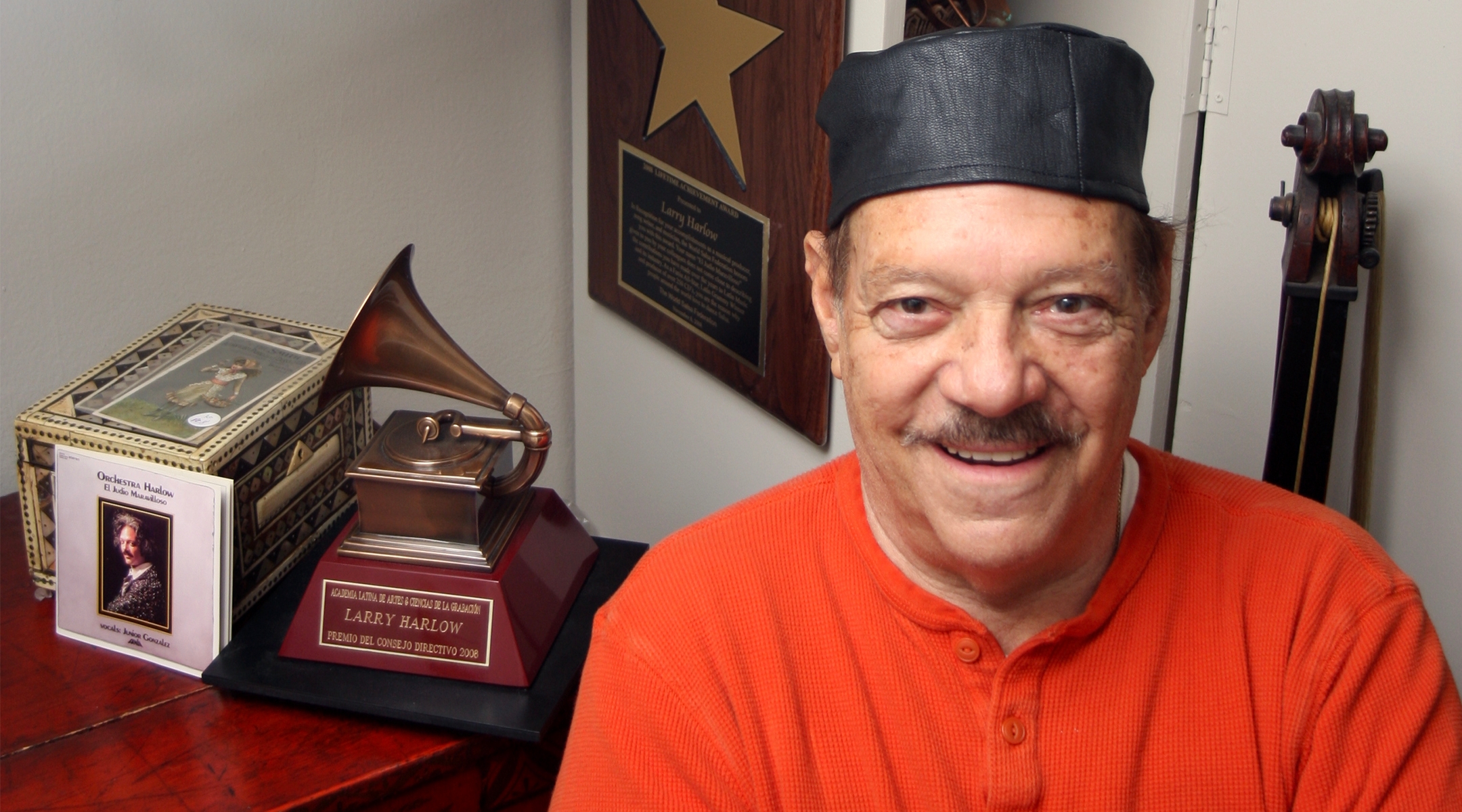
Larry Harlow in his apartment in 2010. (Julian Voloj)
Lawrence Ira Kahn was born to a family of Jewish musicians and quickly honed his own talents after beginning piano lessons at age 5 in 1944. But it was his journey each day to New York City’s High School of Music & Art, then located in Harlem, that propelled him to become Larry Harlow, the Marvelous Jew.
“When I got out of the subway, I would walk up this huge hill and hear this strange music coming from all the bodegas,” the award-winning salsa musician told the Forward in 2006. “I thought, ‘What kind of music is this? It’s really nice.’” He later used his bar mitzvah money to buy a reel-to-reel recorder and a ticket to Cuba, where he studied salsa, then returned to perform in Borscht Belt resorts. Over the course of a long career, Harlow was an award-winning champion and performer of Latin music and culture, embracing the moniker “El Judio Maravilloso” that hosts and emcees used to announce him at concerts.
“I never pretended to be someone I wasn’t,” he said in 2010, more than a decade before his death in August at age 82 in the Bronx. “I was always proud to be Jewish.”
Sylvia Deutsch
A woman who broke barriers in shaping the city.
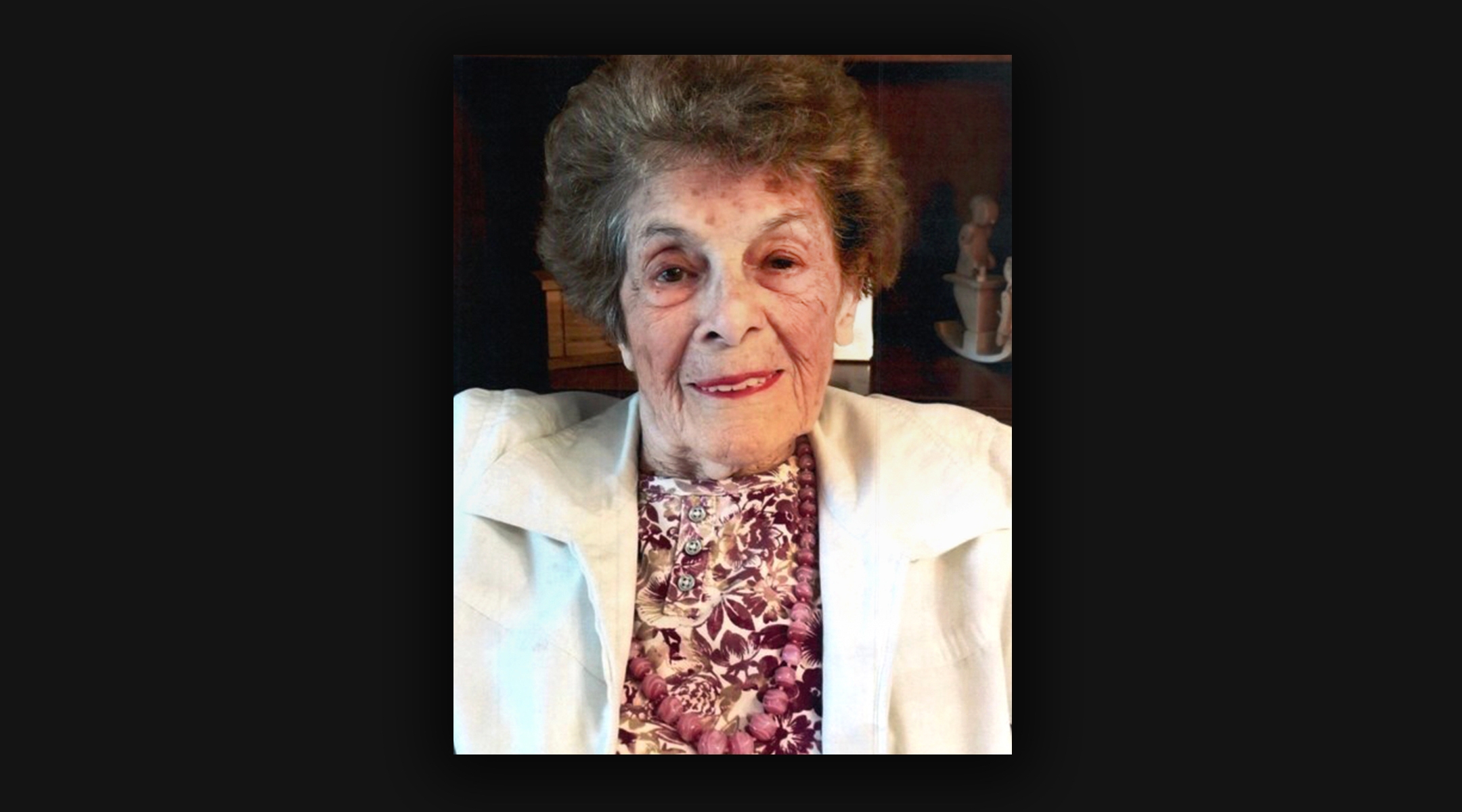
Sylvia Deutsch was the first woman to head the city‘s Board of Standards and Appeals and then its Planning Commission from 1981 to 1989. (Courtesy Bloomfield-Cooper Jewish Chapels)
Sylvia Deutsch’s imprint is visible all across New York City. As the first woman to head the city‘s Board of Standards and Appeals and then its Planning Commission from 1981 to 1989, Deutsch steered the revitalization of Times Square, championing the glitzy, sometimes dizzying visual experience that is now synonymous with the area. She was also deeply engaged in shaping New York far away from places tourists might visit, favoring “contextual zoning” with lower-slung, affordable housing in some areas.
Deutsch rose to prominence for her role as a leader and peacemaker in a contentious education battle in her native Brooklyn; she ultimately designed a school board election system that aimed to give proportionate representation to the many groups sharing the city public schools that she and her children attended. The daughter of immigrants from Lithuania who taught Hebrew, Deutsch took Hebrew classes on her own as an adult in an effort to participate more fully at synagogue services, according to an obituary written by her family, and she also “took full advantage of the rich cultural resources of New York City.”She passed away on June 21 at the age of 96.
Bonnie Mamiye
Lived a full life despite health challenges.
“Our daughter Bonnie was so special. She raised three wonderful children who are in college or just graduated. She had lupus for over 20 years. She lost her kidneys years ago and was on peritoneal dialysis. Mount Sinai Hospital in New York City called her to come there when they had a patient who needed dialysis and was having problems. She did this gladly. She gave a lecture to 40 physicians there in October two years ago, on peritoneal dialysis. She was an expert on the subject. She will be sorely missed.” She died in April. — Alan Karpiloff.
Hash Halper
An artist who drew hearts all over the city.
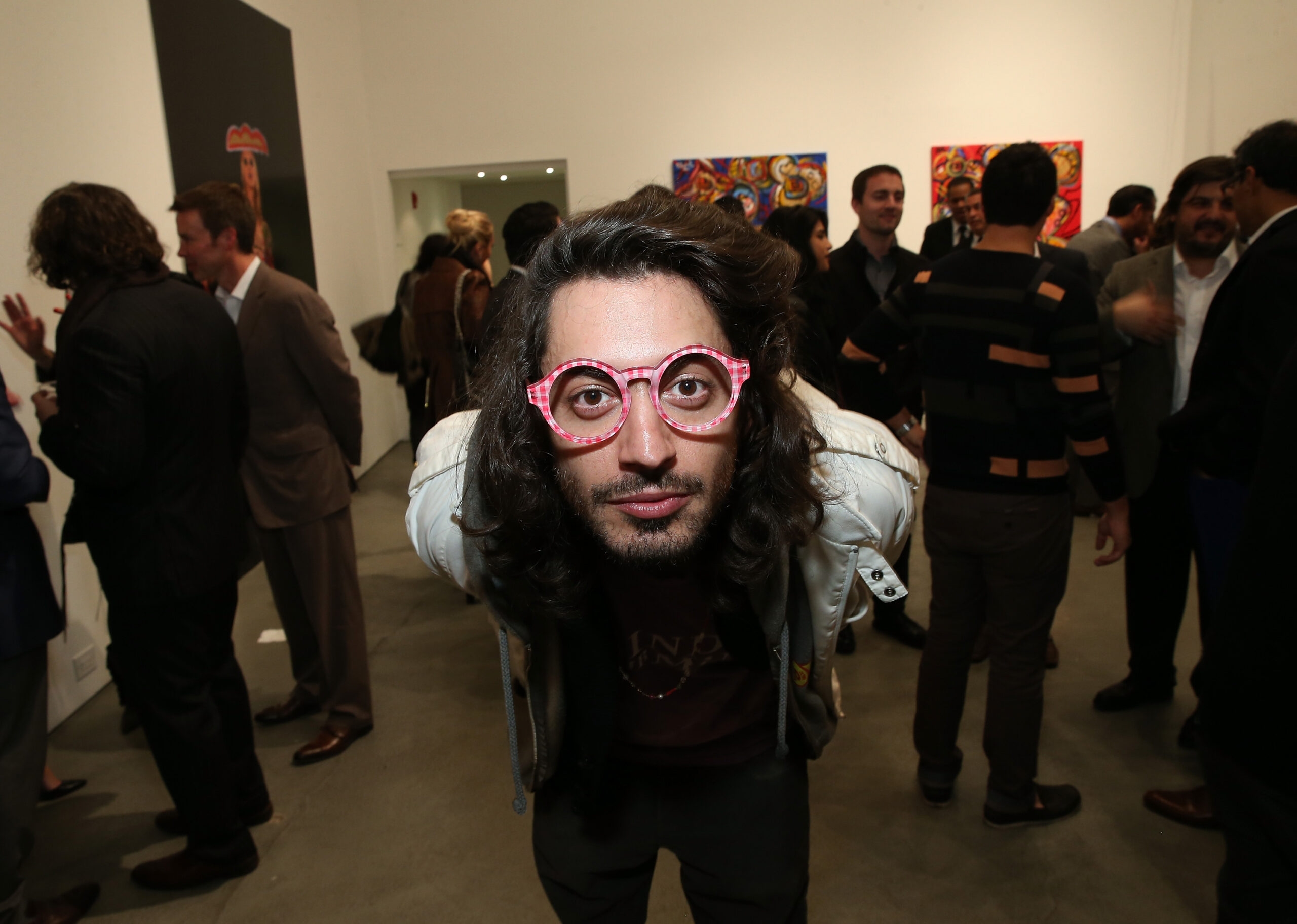
Hash Halper attends an opening at C24 Gallery in New York City, Nov. 6, 2014. (Jemal Countess/Getty Images for Domingo Zapata)
Street artist Hash Halper (born Tzvi Mair Lewis), best known for chalking little hearts on the streets of downtown Manhattan, died on June 11 after what his family said was a jump from the Brooklyn Bridge. He was 41. An alumnus of Yeshiva University High School for Boys in Washington Heights and Yeshiva University, “he became something of a downtown folk hero, cherished for his ability to conjure up positivity with a humble shard of chalk,” according to The New York Times. A friend, the writer Lily Koppel, told the newspaper, “When he was making those hearts, he was making New York City a storybook we all might want to live in.”
DeeDee Benel
Modeled lovingkindness for decades of high school students.
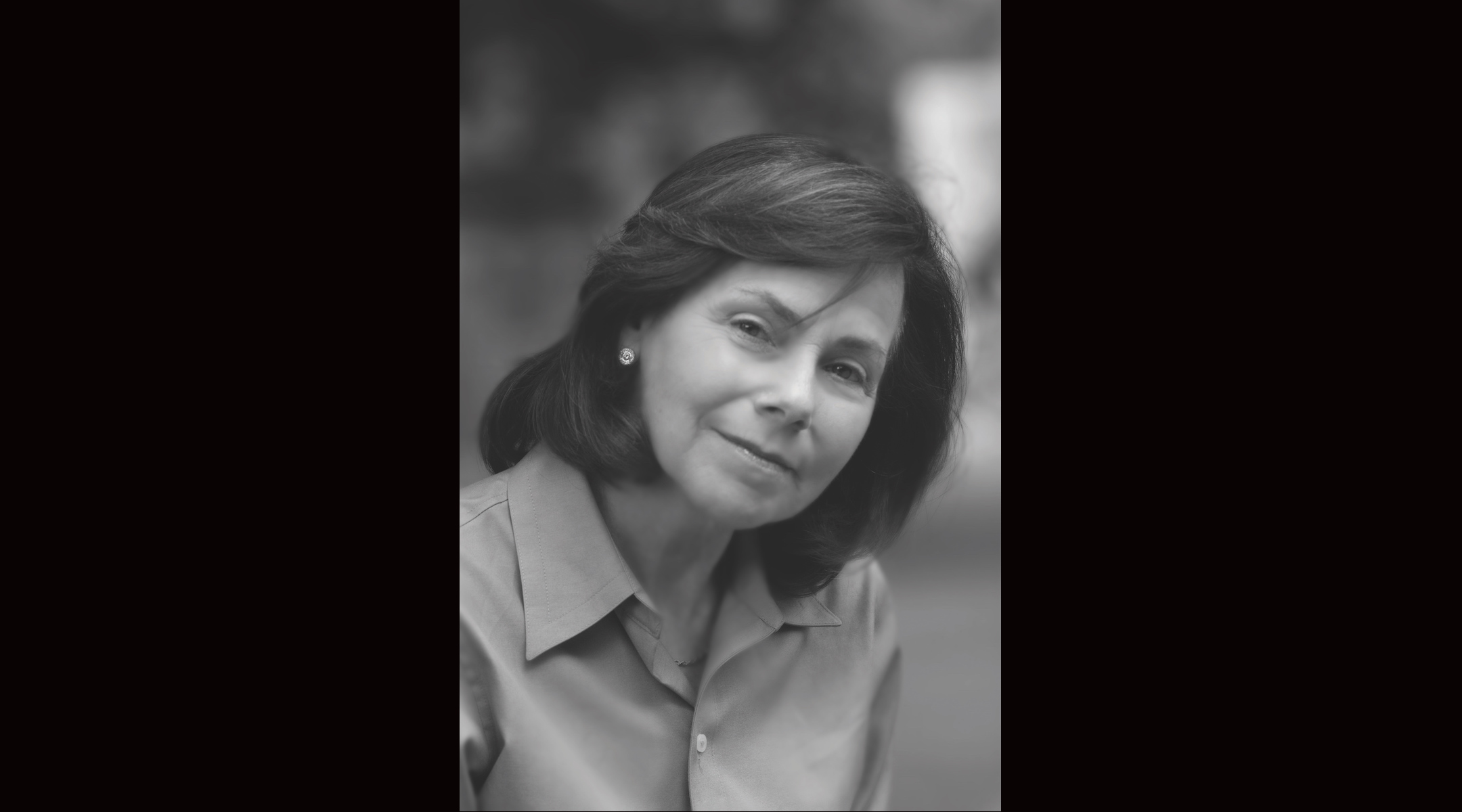
DeeDee Benel ran programming and chesed activities at the Ramaz Upper School for decades. (Courtesy Ramaz)
“The world has lost one of the great experiential educators of the 20th century, my own teacher and friend DeeDee Benel, who ran programming and chesed activities at the Ramaz Upper School for some 30 years. DeeDee took students to meet refuseniks in Russia, to paint bunks at Camp HASC, to distribute goods in New Orleans after Hurricane Katrina, to help rebuild damaged homes in Puerto Rico, to visit sick patients in Lenox Hill Hospital, to pray at the Iranian Consulate for kidnapped chayalim [Israeli soldiers] and more. DeeDee’s influence sent me to Houston after Hurricane Harvey as shaliach [emissary] of the Great Neck school and synagogue communities prior to Rosh Hashanah in 2017. DeeDee planned programs for every significant moment of the Jewish year and taught her students that there was only one way to do things: perfectly. No matter how much preparation each perfection requires. Her high standards and work ethic inspired generations of students.
“If you cared about something, DeeDee taught us, you must act.” She died in June.— Rabbi Jeffrey Kobrin, head of school, North Shore Hebrew Academy, and former Ramaz Upper School headmaster
Saul Cohen
Reshaped New York City’s colleges.
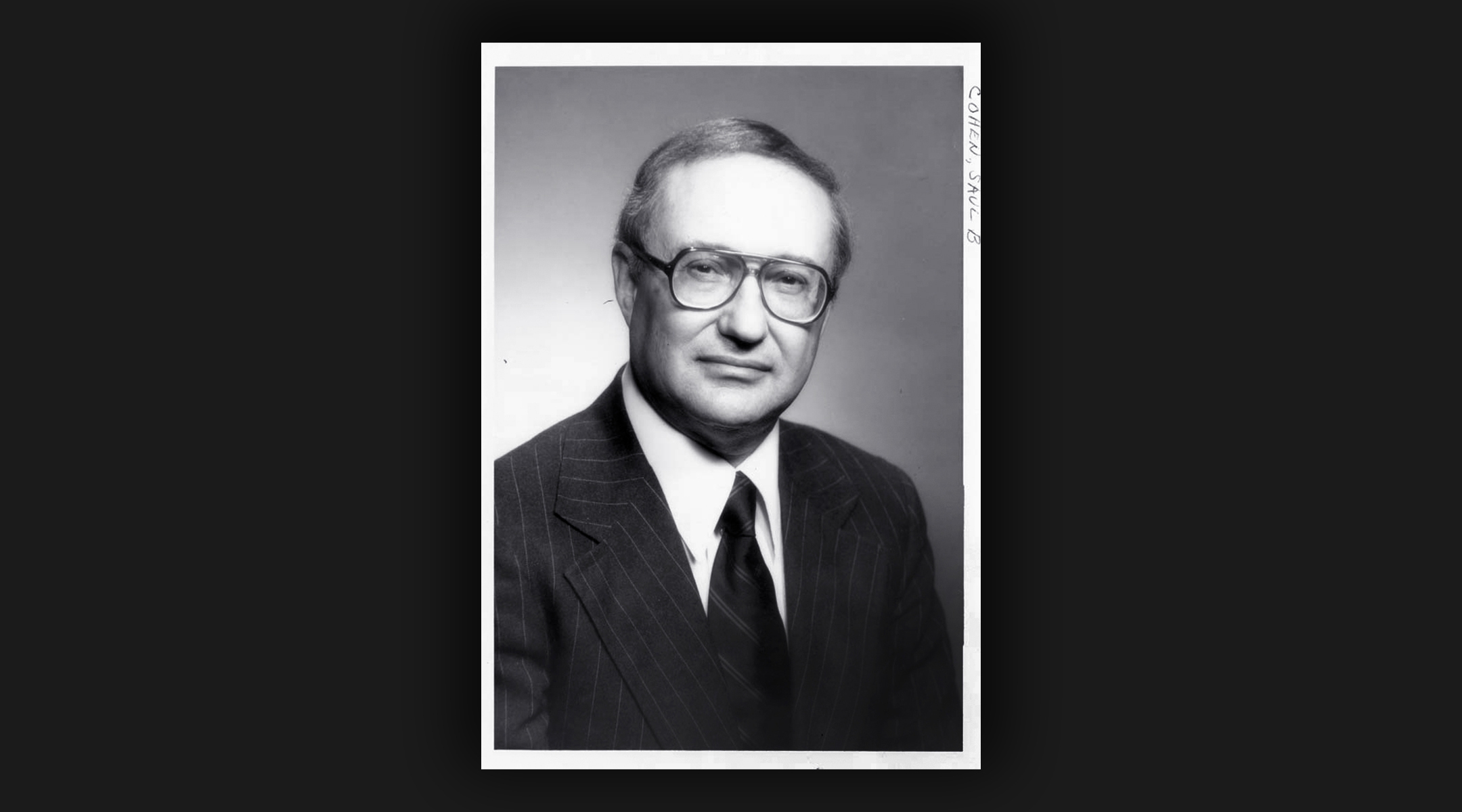
Saul Cohen became the president of Queens College in 1978. (Courtesy Queens College)
Like another influential New York Jew, Mike Bloomberg, Saul Cohen was a son of Malden, Massachusetts, who did not move to New York until he had embarked upon his career. But he made a significant mark on the city when he was recruited to become the president of Queens College in 1978, in large part on the strength of his commitment to maintaining high academic standards while also increasing student diversity. After ending his tenure there in 1985, Cohen returned to the classroom, teaching geography at Hunter College before joining the Board of Regents, the state’s education policymaking body. In that role, he engineered a compromise that ended the era of open admissions at the City University of New York.
A product of Hebrew College’s Hebrew high school program and secular Zionist youth programs, he wrote a dissertation at Harvard University dealing with the port of Haifa, an Israeli city with which he developed and maintained close ties; his daughter Deborah Shmueli is a geography professor at the University of Haifa. Cohen died on June 9 at his home in Larchmont. He was 95.
Mimi Lieber
A marketing pioneer who lobbied for more funding for public schools.
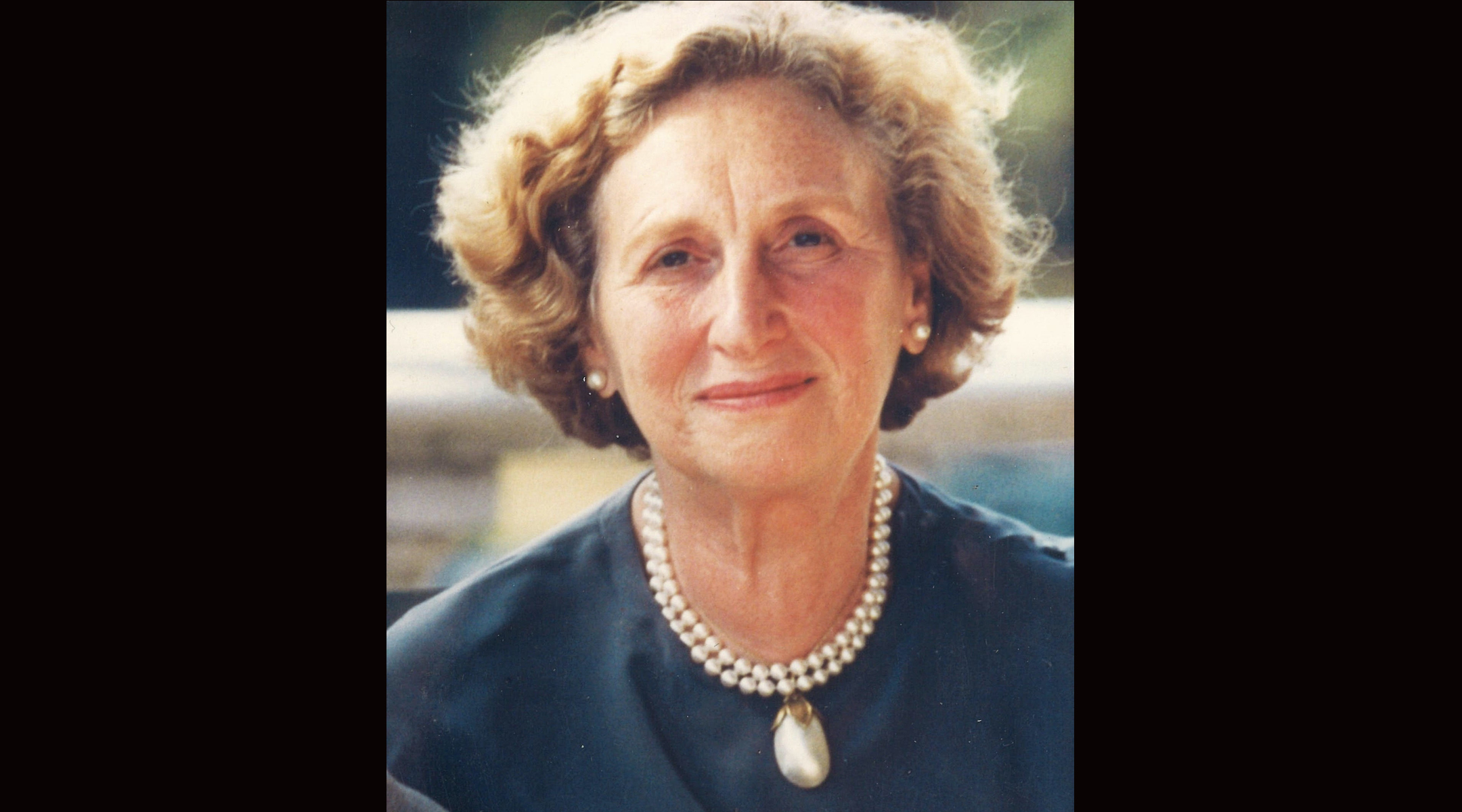
Mimi Lieber revolutionized the use of focus groups to understand consumer preferences. (Courtesy Lieber family)
Raised in Detroit and educated at the University of Chicago, Mimi Lieber moved to New York City after college and embarked on a career in marketing that revolutionized the use of focus groups to understand consumer preferences. (L’Eggs, those egg-shaped plastic pantyhose containers that once were found at supermarket checkout stations? They grew out of her research.) As a member of New York’s Board of Regents, she successfully pressed for more funding for schools serving children from low-income families; after stepping down, she founded a literacy nonprofit. Through it all, she and her husband were highly involved in the Reconstructionist movement, as members of SAJ, the synagogue in their Upper West Side neighborhood. She was preceded in death by a few months by a first cousin, the former Michigan Sen. Carl Levin; among her survivors is a son, Janno Lieber, who is the current chair of the Metropolitan Transit Authority. She died on Oct. 16 at age 93.
Marion Shulevitz
A rabbi at the vanguard of egalitarian Judaism.
Rabbi Marion Ruth Shulevitz, who worked as a chaplain in hospitals, nursing homes and hospice programs in New York City for 25 years, died May 1 at her home in the city. She was 88. Shulevitz entered rabbinical school at the Jewish Theological Seminary in 1984, in the first class to include women. She was 51 and described feeling wistful at knowing that she would not have the career she might have had the Conservative movement decided earlier to ordain women. Her family described her as a devoted member of Congregation Ansche Chesed and a fighter for egalitarian Judaism who was proud to get arrested at the Western Wall in Jerusalem for demanding women’s rights.
Nach Waxman
Created community through cookbooks.
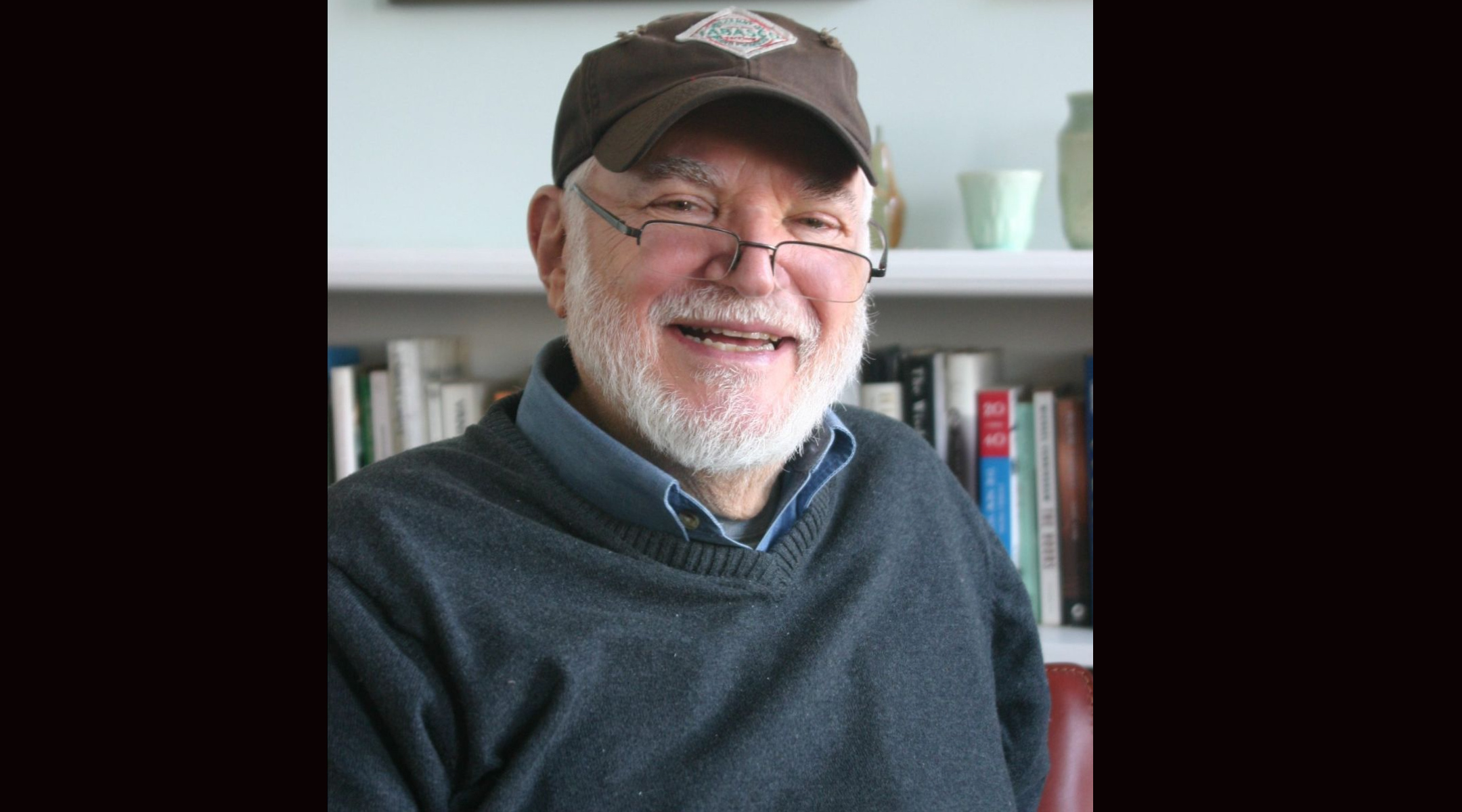
Nach Waxman was devoted to traditional Jewish foods, especially schmaltz and liver, and kept a collection of his own Jewish cookbooks in the back of his store. (Kitchen Arts & Letters)
Nach Waxman built his Upper East Side bookstore, Kitchen Arts & Letters, into an international destination for foodies and consumers of cookbooks. On the Upper West Side, he built a community through his synagogue, Congregation Ansche Chesed, where he and his wife arrived promptly each Shabbat and stayed through the end of the service, and through salons that the couple held in their apartment. The Sunday morning Torah study sessions came with bagels and lox, or matzah brei at Passover and latkes at Hanukkah. After he died at 84 in August, Waxman’s friends remembered him as “a wonderful cook — chef, actually” and someone who devoted himself totally to his passions. “There’s nobody like Nach — in a way it’s just a different time now,” said the Jewish cookbook author Joan Nathan. “People are more entrepreneurs. He did this for the love of it.”
This article was made possible by the generous support of Riverside Memorial Chapel, which has served Jewish families across the greater metropolitan New York area since 1897.
—
The post May their memories be a blessing: 18 notable New York Jews who died in 2021 appeared first on Jewish Telegraphic Agency.















